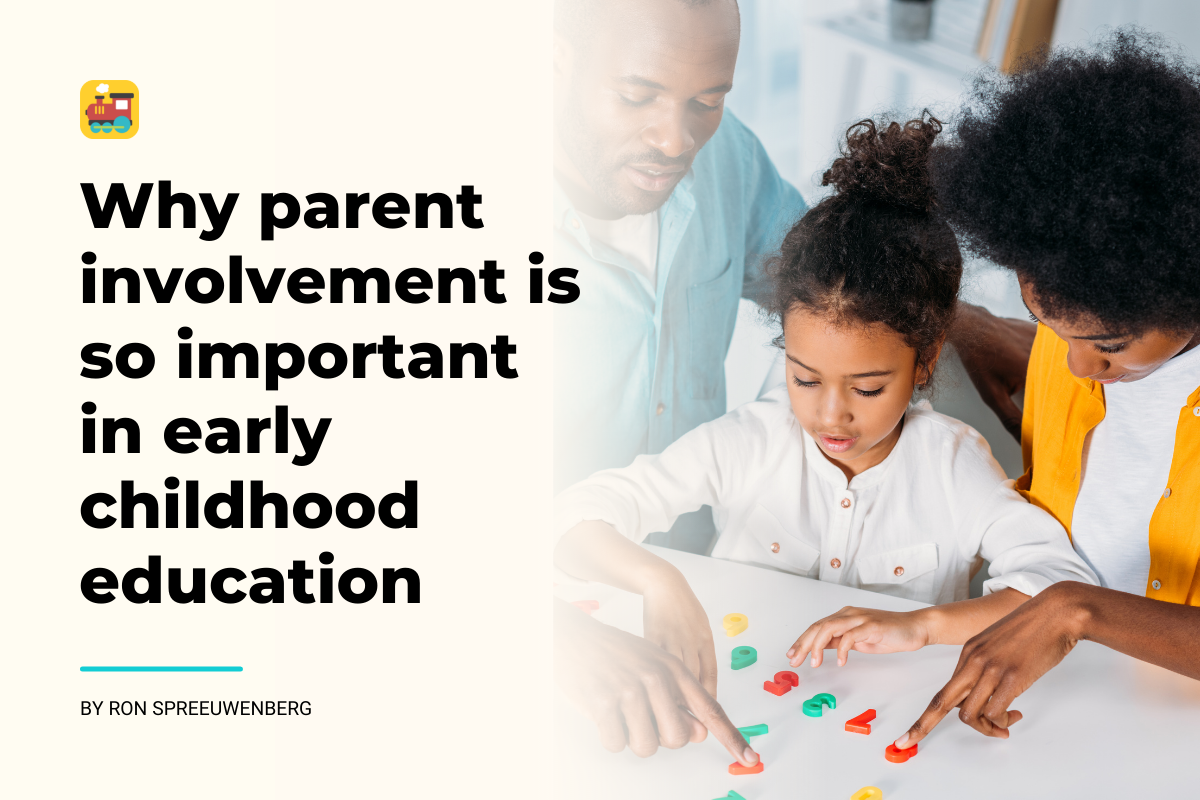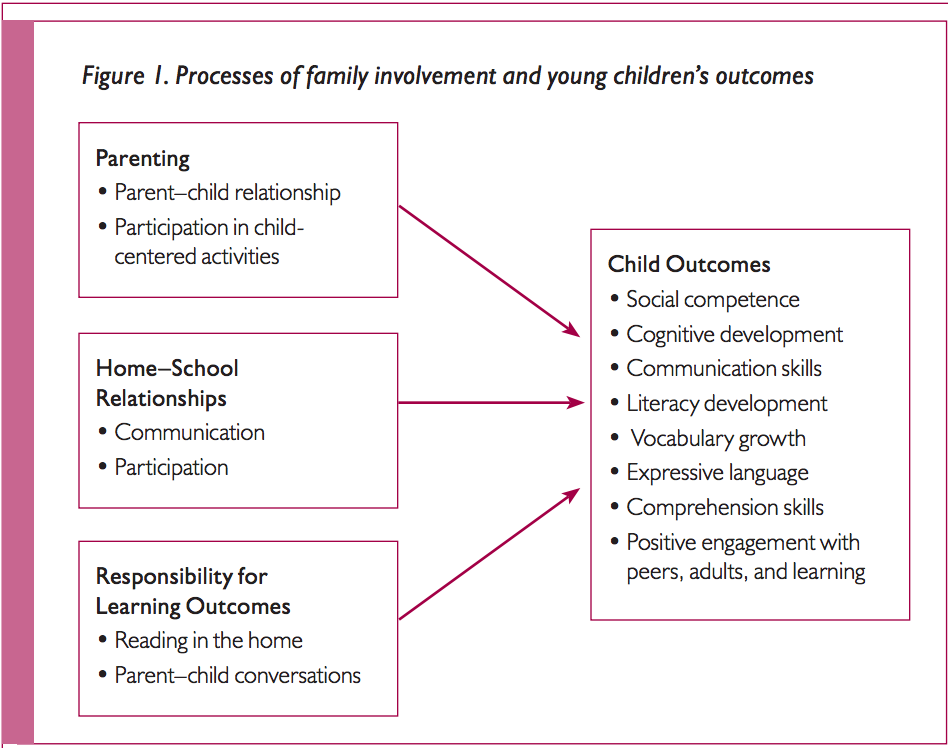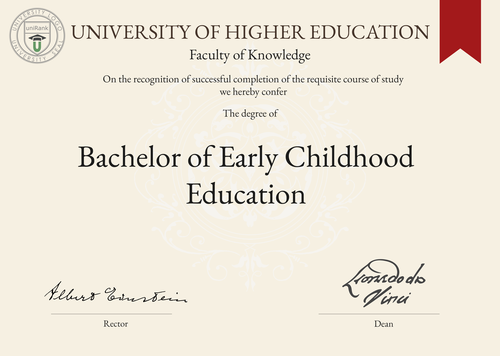Why Family Involvement is Vital for Early Childhood Education

Family involvement is crucial in early childhood education as it enhances learning outcomes and strengthens parent-child relationships. Engaging families in their child’s education promotes a collaborative learning environment that supports holistic development.
Parents play a vital role in shaping a child’s attitudes towards learning and school, making their involvement essential for academic success. By actively participating in their child’s educational journey, families can provide support, encouragement, and guidance that are invaluable in fostering a positive learning experience.
This partnership between educators and families creates a strong foundation for children to thrive academically, socially, and emotionally.
Importance Of Family Involvement
The importance of family involvement in early childhood education cannot be overstated. When families actively participate in their child’s education, it creates a supportive environment that enhances learning outcomes. This involvement not only benefits the child but also fosters a stronger connection between the family and the educational institution.
Creating A Supportive Environment
Family involvement plays a vital role in creating a supportive environment for children in their early childhood education. When families are engaged in their child’s learning, it sends a powerful message that education is valued and important. This support at home can significantly impact a child’s attitude towards learning and their overall academic success.
Enhancing Learning Outcomes
Family involvement also has a direct impact on enhancing learning outcomes for young children. When families are actively involved in their child’s education, it encourages a positive attitude towards learning, leading to improved academic performance and increased motivation. Furthermore, parental involvement can help educators gain valuable insights into a child’s strengths, weaknesses, and individual learning styles, allowing for more personalized and effective teaching strategies.
Benefits Of Family Engagement
Promoting Social And Emotional Development
Family involvement in early childhood education plays a pivotal role in promoting social and emotional development in young children. When families actively engage in their child’s education, it creates a nurturing and supportive environment that fosters the development of social skills, empathy, and emotional resilience. Through regular interaction with family members, children learn to communicate, collaborate, and develop a sense of belonging within their family and community.
Fostering A Stronger Parent-child Relationship
Active participation of families in early childhood education fosters a stronger parent-child relationship. By being actively involved in their child’s educational journey, parents can better understand their child’s strengths, weaknesses, and learning styles. This deeper understanding strengthens the bond between parents and children, creating a supportive and trusting relationship that positively impacts the child’s overall well-being and academic success.
Barriers To Family Involvement
Lack Of Awareness
Many families may not fully understand the importance of their involvement in their child’s early education. They might not realize that their engagement can significantly impact their child’s development and school readiness. Lack of awareness about the benefits of family involvement may lead to disengagement and missed opportunities for children to thrive in their educational journey.
Time Constraints
Busy schedules and time constraints can be major obstacles preventing families from actively participating in their child’s early education. Parents and guardians often juggle multiple responsibilities, making it challenging to find the time to engage with their child’s school and educators. Time constraints may result in missed parent-teacher meetings, limited involvement in school activities, and a disconnect between the family and the learning environment.

Credit: www.himama.com
Strategies For Increasing Family Involvement
Family involvement plays a crucial role in the success of early childhood education. It strengthens the connection between home and school, leading to improved academic and social outcomes for children. Engaging families in the educational process fosters a supportive environment, enhances communication, and promotes a sense of belonging for both parents and children. Implementing effective strategies for increasing family involvement is essential for creating a collaborative partnership between educators and families.
Regular Communication
Establishing regular communication channels between educators and families is vital for keeping parents informed about their child’s progress and the activities happening at the school. This can be achieved through various means such as:
- Weekly newsletters
- Parent-teacher conferences
- Phone calls or emails for individual updates
Involving Families In Decision-making
Empowering families to participate in decision-making processes regarding their child’s education creates a sense of ownership and investment in their child’s learning journey. Strategies to involve families in decision-making include:
- Parent advisory committees
- Surveys or feedback forms to gather input on school policies and programs
- Collaborative goal-setting sessions with parents and educators
Impact Of Family Involvement On Academic Success
Families play a crucial role in the academic success of children in early childhood education. Family involvement has a significant impact on various aspects of a child’s academic journey. Let’s delve into how family engagement positively affects academic success.
Improved School Readiness
Family involvement in early childhood education leads to improved school readiness by creating a supportive learning environment at home.
Higher Academic Achievement
Family engagement results in higher academic achievement as children receive continuous support and encouragement from their family members.

Credit: www.semanticscholar.org
Cultural Considerations In Family Involvement
Engaging families in early childhood education fosters a rich cultural exchange that enhances learning experiences. Family involvement plays a pivotal role in shaping a child’s development and academic success. It creates a supportive environment that values diverse perspectives and promotes holistic growth.
Early childhood education is an essential aspect of a child’s development. Parents and families play a crucial role in this process, and their involvement is essential for the success of early childhood education. However, cultural considerations must be taken into account when it comes to family involvement in early childhood education. In this section, we will discuss the importance of respecting diversity and tailoring approaches to ensure that all families feel welcome and included in their child’s education.Respecting Diversity
Every family is unique, and they come from different cultural backgrounds. As such, it is essential to respect and acknowledge these differences when involving families in their child’s education. By respecting diversity, we can create a welcoming and inclusive environment that encourages families to participate actively in their child’s learning. To respect diversity, educators must be aware of the cultural backgrounds of the families in their care. They should take the time to learn about the traditions, customs, and beliefs of each family to better understand their needs and expectations. Educators should also be mindful of their own cultural biases and work to overcome them to create a more inclusive learning environment.Tailoring Approaches
To ensure that all families feel welcome and included in their child’s education, educators must tailor their approaches to meet the needs of each family. This involves taking into account each family’s cultural background, language, and communication style. One way to tailor approaches is by providing information in the family’s preferred language. Educators should also be aware of cultural differences in communication styles and adjust their communication accordingly. For example, some cultures value direct communication, while others value indirect communication. Another way to tailor approaches is by involving families in decision-making processes. By including families in decision-making, educators can ensure that their needs and expectations are met. In conclusion, cultural considerations must be taken into account when involving families in early childhood education. Educators must respect diversity and tailor their approaches to ensure that all families feel welcome and included in their child’s education. By doing so, we can create an inclusive learning environment that supports the success and development of every child.Community Partnerships In Family Engagement
Community partnerships in family engagement play a crucial role in early childhood education. Collaborating with local organizations and providing support services are essential aspects of creating a strong network of support for families. These partnerships foster a sense of belonging and enable parents to be actively involved in their child’s educational journey.
Collaborating With Local Organizations
Collaborating with local organizations such as community centers, libraries, and non-profit agencies can enrich family engagement in early childhood education. By partnering with these organizations, educational institutions can provide access to resources and support that benefit the entire family. This collaboration helps create a holistic approach to education, ensuring that families have the necessary tools and support to actively participate in their child’s learning.
Providing Support Services
Offering support services, such as parenting workshops, counseling, and access to social services, is vital in promoting family involvement in early childhood education. These services address the diverse needs of families, empowering them to overcome challenges and actively engage in their child’s educational development. By providing comprehensive support, educational institutions can create a nurturing environment that values and supports the role of families in their child’s education.
Overcoming Challenges In Family Involvement
Overcoming challenges in family involvement is crucial for enhancing early childhood education. Building trust, addressing language barriers, and other obstacles can hinder effective participation.
Building Trust
Establishing trust between educators and families is paramount for successful involvement. Open communication and transparency are key in fostering a trusting relationship.
Addressing Language Barriers
Language barriers can impede family involvement in early childhood education. Providing interpreters or multilingual resources can help bridge the gap and encourage collaboration.

Credit: scalar.usc.edu
Frequently Asked Questions
Why Is Family Involvement Important In Early Childhood?
Family involvement in early childhood is crucial for child development, fostering communication, social skills, and emotional support. It enhances learning experiences and strengthens family bonds.
Why Is It Important To Include The Family In The Early Childhood Classroom?
Involving families in the classroom fosters collaboration and strengthens child development. It promotes a supportive learning environment and enhances communication between home and school.
Why Is Family Engagement Important In Education?
Family engagement in education is important as it fosters a supportive learning environment. It strengthens student motivation and academic achievement. Additionally, it enhances communication between home and school, leading to better student outcomes. Active involvement in a child’s education positively impacts their overall success.
Why Is Family Involvement Important In Special Education?
Family involvement is crucial in special education as it helps to improve the academic performance and social skills of children with special needs. It also ensures that the child’s needs are met, enhances communication between parents and educators, and promotes a positive learning environment.
Conclusion
Family involvement in early childhood education fosters a strong foundation for lifelong learning. By actively engaging in a child’s educational journey, families can enhance academic success and social development. This partnership between families and educators is crucial for creating a supportive learning environment that nurtures children’s growth and potential.
Lorem Ipsum is simply dummy text of the printing and typesetting industry. Lorem Ipsum has been the industry’s standard dummy text ever since the 1500s, when an unknown printer took a galley of type and scrambled it to make a type specimen book.






